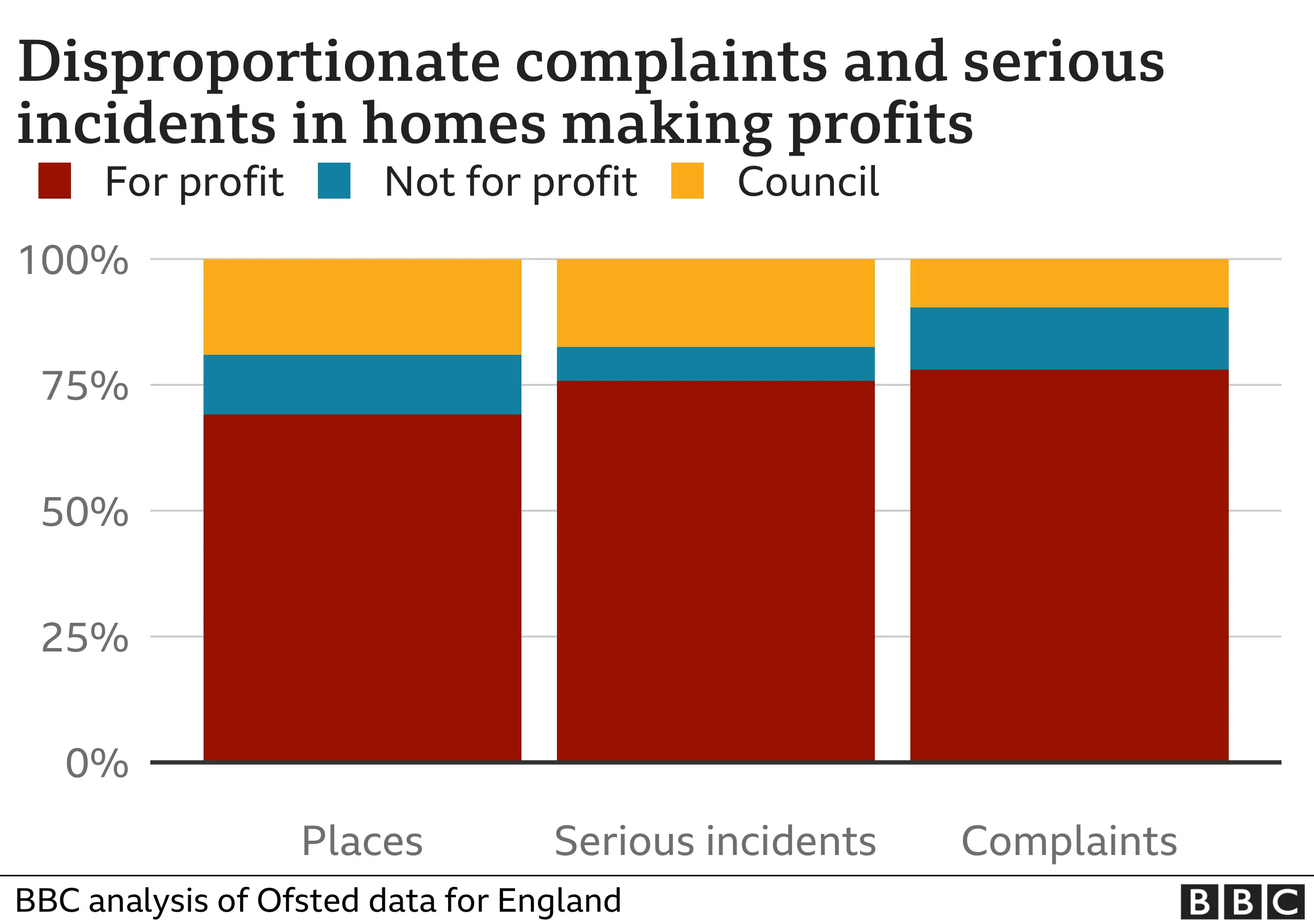Complaints higher at children’s homes run for profit
 Getty Images
Getty ImagesPrivate children's homes run to make a profit in England have more police callouts and whistleblowing complaints than homes run by charities and councils, the BBC has learned.
Analysis of new data from Ofsted shows the for-profit sector accounted for disproportionately high numbers.
It is not known how many complaints about homes were upheld.
Private providers say Ofsted ratings indicate no significant difference in overall quality between types of homes.
The for-profit sector provides 69% of children's home bed spaces across England.
But analysis by the BBC's File on 4 found that it accounted for 78% of lodged complaints between 2018-21. It also recorded 76% of all serious incidents involving the police last year.
A high number of incidents may reflect the complex needs of individual children, says Ofsted, the government's children's services inspector.
But the Association of Directors of Children Services - which speaks for social services' leaders - claims private firms are increasingly selecting the least challenging children, leaving councils struggling to find homes for those with the greatest needs.
Residential homes are the last resort for many young people - with the foster care system judged as inappropriate for those who have suffered the worst abuse and neglect.
Most homes in England and Wales - more than 80% - are run to make a profit. The rest are owned by charities or councils. Successive governments have encouraged more private involvement, while abuse scandals and budget cuts have led to the closure of many council homes.
Some firms enter the care market prioritising profits over the needs of children in care, says Anne Longfield, the former children's commissioner for England. "This [Ofsted] data should sound alarm bells ringing," she told File on 4.
The 10 providers recording the highest number of serious incidents in 2021, involving police call-outs, were all profit-making private groups - with more than half owned by private equity companies. They accounted for 25% of all incidents, but only provided 19% of places. These 10 major providers collect more than £1bn from local authority children's services each year.
The Horizon Care and Education Group - one of the top 10 providers owned by a private equity firm - runs 47 homes. It logged 124 police call outs and 15 complaints in 2020-21, according to Ofsted. It received £55m from local councils in that time.
When asked by File on 4 about the number of call outs and complaints, Horizon said it took all incidents very seriously - and that 86% of its homes were rated as good or outstanding by Ofsted, much higher than the market average.

The BBC investigation also found that hundreds of children are being sent to deprived areas, where it is cheaper for private firms to locate homes.
In the past three years Blackpool, which has a large cluster of privately run homes, received 255 children from 85 local councils - some of them many miles away, including Oxfordshire, Dorset and 10 different London boroughs. Another hotspot for private homes, Staffordshire, received 256 children from 134 councils including Plymouth, Essex and Brighton.
Both the Welsh and Scottish governments have pledged to stop companies profiting from vulnerable children. In England, a government-commissioned review of children's care last month called for a complete end to profit-making but ministers have so far failed to back the demand.
Children's minister Will Quince told the Commons after the review was published, that he had "no issue with profit" in general, only profiteering. He proposed greater market oversight.


The Independent Children's Homes Association, which represents large and small providers, said Ofsted gradings showed no significant degree of variance by type of provider - private, local authority or charity-run. It has previously said the sector is in "crisis", with increasing demand for places, severe staff shortages and ballooning costs.
The Department for Education said no private company should exploit children in need of placement. It said it would be publishing a new plan which will bring a fundamental shift in how vulnerable children are cared for by the end of the year.
